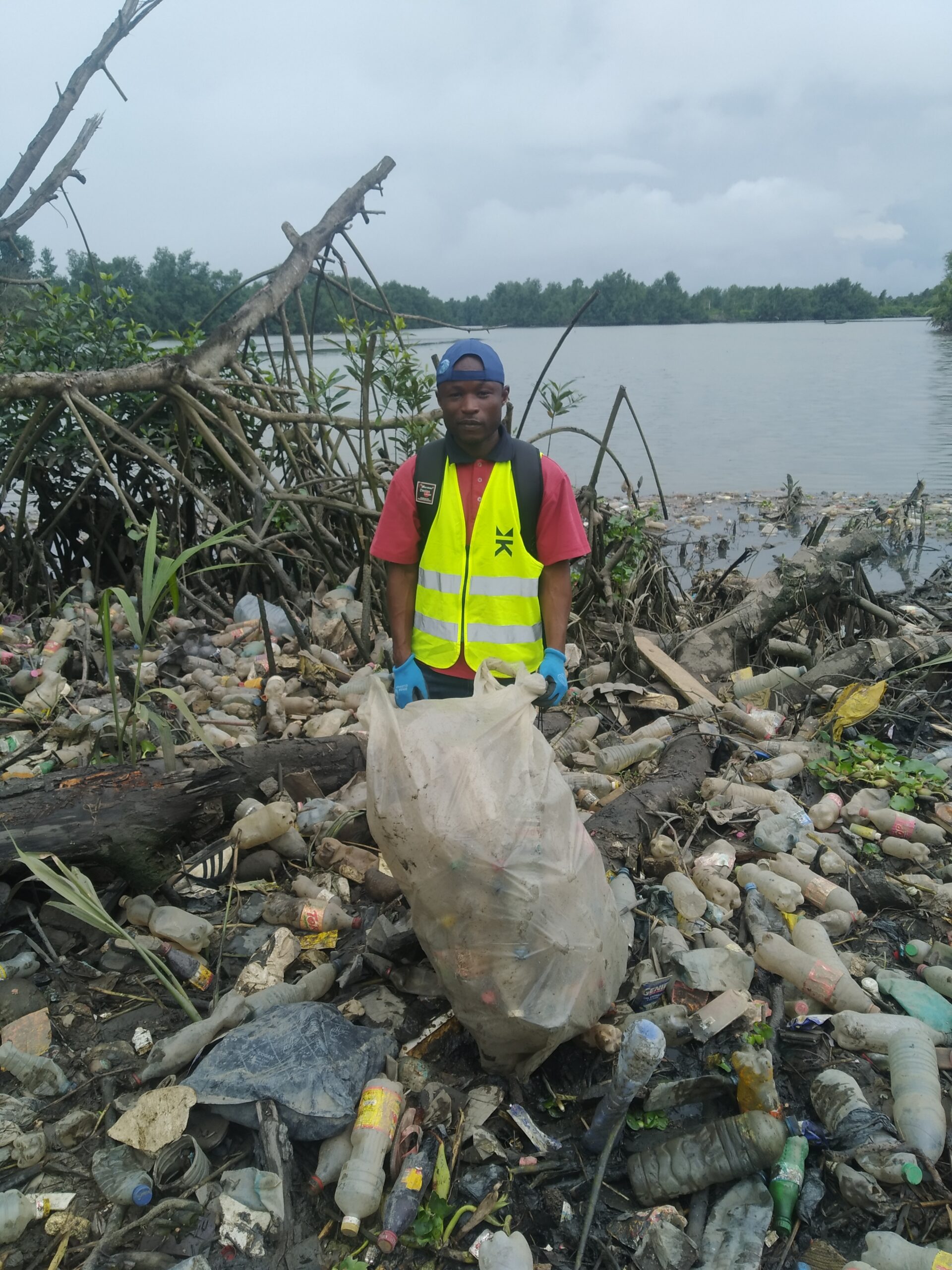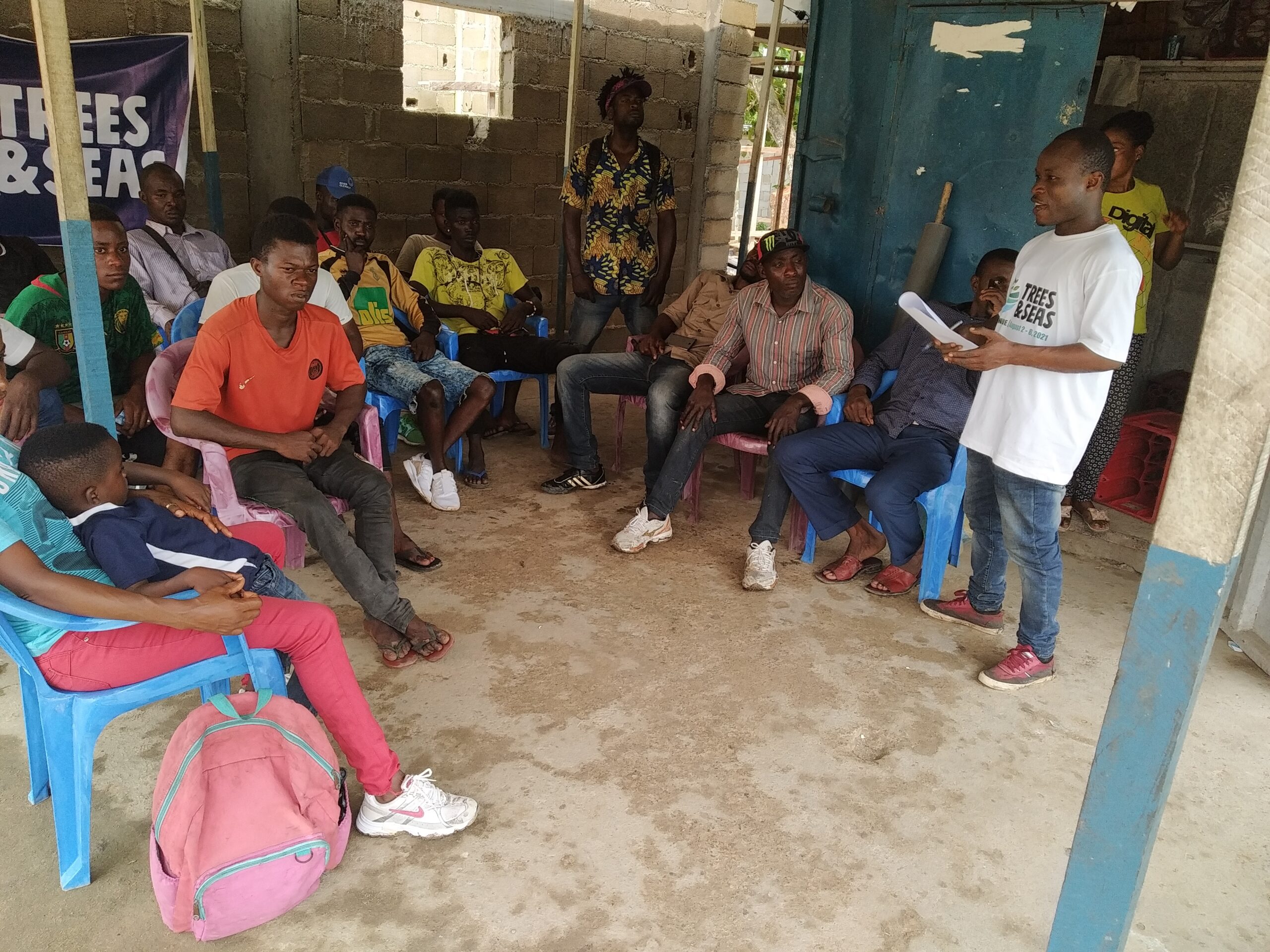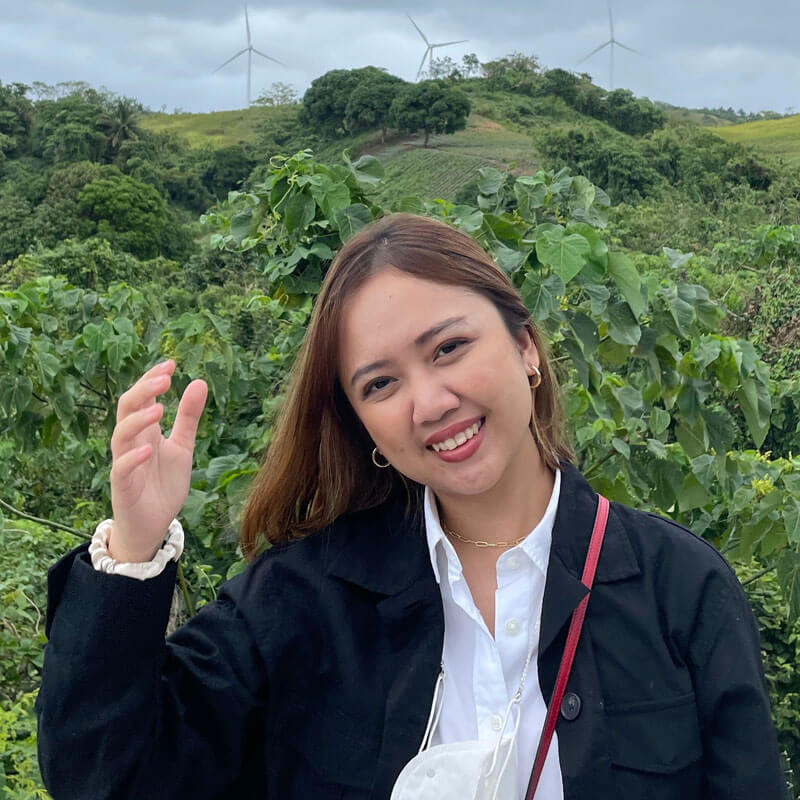How One Environmentalist is Turning Plastic Waste into a Valuable Resource in Cameroon
By Cidee Despi

Meet Achare Elvis Ayamba, a young environmental leader from Cameroon, West Africa, who has a passion for the natural environment, particularly water. His love for nature has driven him to found the Environmental and Food Foundation (E2F) which focuses on marine and freshwater ecosystems. The foundation works with indigenous peoples, local communities, youth, and women to collect and recycle plastic waste with a traceable social and environmental impact. Ayamba’s innovative approach seeks to monetize and turn what was once waste into a valuable resource, create new jobs, and relieve Douala from plastic pollution.
Douala, Cameroon’s economic capital, produces over 20,000 tons of plastic waste daily, with only 2% collected and 1% recycled. Urbanization and inadequate plastic waste management infrastructures lead to increased plastics ending up in the natural environment. This plastic waste pollution is one of the major threats to the community, affecting marine and aquatic ecosystems, land, and human health. Ayamba seeks to tackle this issue by hosting cleanup events, organizing training workshops, and valorizing plastic waste collected into local products.
Through the EXCELerator program, Ayamba has gained knowledge and skills in project writing, fundraising, developing sustainable smart goals, advocacy, policy, and proposal writing. The program has not only helped his project but has also helped him personally by providing him with a foundation for a startup that is sustainable for many years without shutting down.

Ayamba’s project is focused on collecting and valorizing plastic waste with a traceable social and environmental impact. The collected plastic waste bottles are shredded into granulated plastic for sale to plastic packaging companies, while the waste that cannot be recovered by shredding is recycled to produce paving tile, boards, sheets, PVC pipes, PET bottles, buckets, and more, which serve the local communities in many ways. At the end of the 6-month program, Ayamba aims to organize over 12 cleanup events in landfills, rivers, streams, streets, mangroves, and beaches while incentivizing the collection of plastics waste from informal waste pickers. He also aims to host over 5 environmental education workshops with coastal community members, primary school pupils, and others on proper waste management.
Ayamba’s passion for the natural environment has driven him to turn plastic waste into a valuable resource in Cameroon, creating new jobs, and relieving Douala from plastic pollution. His innovative approach seeks to monetize what was once waste, change the paradigm on plastic, and reduce extreme poverty in Cameroon. Through the EXCELerator program, Ayamba has gained knowledge and skills that have helped his project and him personally.


